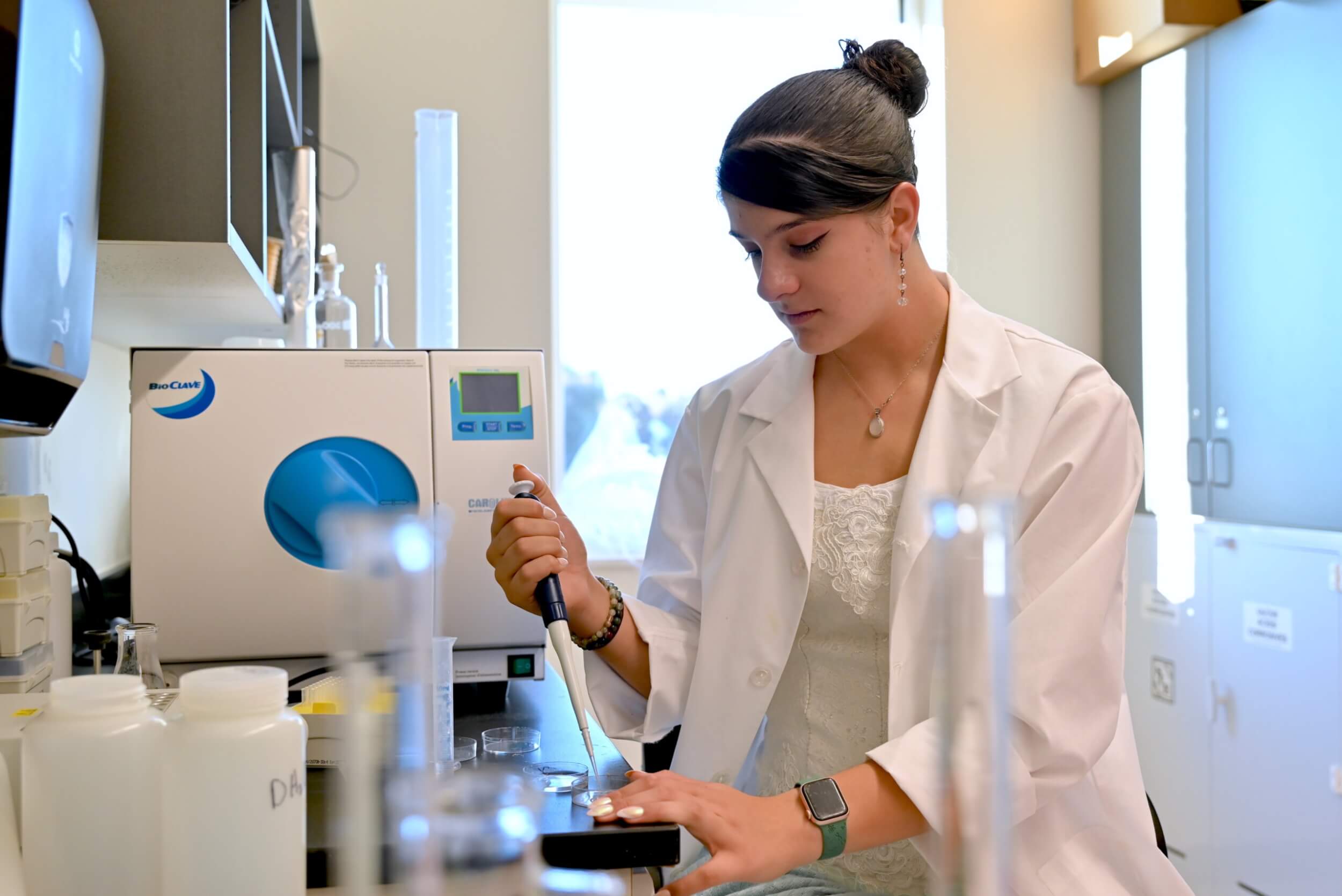Colorado Academy Senior Bela Chaudhuri describes herself as “someone who has a lot of interests and a lot of curiosity, and so I really like to pursue a lot of different things. The reason I’ve been able to continue to do so as I’ve progressed through high school is because CA supports you in doing that.”
Chaudhuri is right about “a lot”: This STEM-focused scholar balances AP-level and post-AP biology and mathematics with Studio Art, Honors creative writing and literature, voice lessons, and a role as a starter on the Varsity Girls Volleyball team.
But what most inspires her at the moment is her independent study in science, CRISPR & Sickle Cell Anemia. “CRISPR is an incredibly cool process that’s central to the direction that science is going in the future,” Chaudhuri explains. The gene-editing technology gives scientists the ability to alter the DNA inside individual cells of plants and animals easily and economically.
According to many, it will likely change the world as we know it by transforming medicine and food production and even altering the course of human evolution.
In the independent study she designed with science teacher and Science Department Chair Suzie Jekel serving as advisor, Chaudhuri is learning firsthand how to edit genes in bacteria such as E. coli and researching ways that CRISPR might be used to cure a devastating blood disorder that affects millions of people worldwide. It’s thought that the technology could correct the genetic mutation that causes sickle cell anemia.
According to Chaudhuri, “Part of my interest in pursuing this course was me just exploring something that I’m curious about; another part of it was me preparing myself for my career, since I want to go into scientific research, and I have no doubt that CRISPR is going to be an integral part of that.”
What’s special about studying CRISPR at CA, Chaudhuri goes on, is that she’s been able to draw on much of the other work she’s done in the Upper School—in fields ranging from history to philosophy—to inform her thinking about science.
For example, she relates, in the Gender Studies Honors course her Junior year, she discovered how forces in society have created, regulated, and reinforced gender throughout history. “Considering how male-dominated scientific research has been, it’s interesting to see how that’s now shifting as more women have begun to speak up and gender-nonconforming people have entered the field. Knowing how we got here is essential preparation for anyone going into science.”
That type of cross-disciplinary teaching and learning has been at the heart of her CA experience, says Chaudhuri. “Teachers here are so good about making connections between different classes and areas of study. There’s a lot of back-and-forth between what you’re learning, so that it doesn’t feel like you’re taking six separate courses. It’s like I’m experiencing this giant mass of interconnected knowledge.”
“The whole world is interdisciplinary,” she continues. “Being able to apply what you’re learning in one area to what you’re studying in another is essential to moving forward in life. You’re becoming a more conscientious human, with all the tools you need to navigate the world.”
